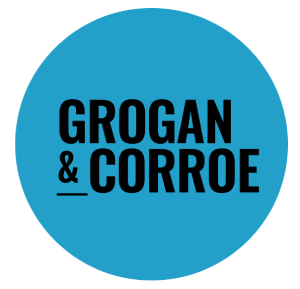For generations, word of mouth has been the most trusted way of finding a reliable business. A neighbour recommending a builder, a friend suggesting a restaurant — personal referrals shaped choices long before the internet. Today, those conversations still happen. The difference is that they rarely end there. Almost everyone follows up by searching online, checking reviews, and comparing options.
Whether you run a café in Cork, a consultancy in London, or an agency in Singapore, word of mouth on its own no longer carries enough weight. A website has become the essential partner to any good reputation.
The Limits of Word of Mouth in 2025
Referrals remain powerful, but they face clear limits:
-
Reach is restricted. A personal recommendation only spreads as far as someone’s network. Scaling beyond that requires visibility online.
-
Verification is expected. When a name is mentioned, most people instinctively look it up. No website, or a poor one, creates instant doubt.
-
Information matters. Today’s customers want proof: examples of work, pricing, and reassurance that a business is credible. Word of mouth alone can’t provide that.
-
Trust now includes digital trust. Online reviews, testimonials, and social proof carry almost as much weight as personal referrals.

What the Numbers Say
Research suggests personal recommendations are still valued — but are now deeply intertwined with online discovery:
-
88% of consumers trust recommendations from friends and family, but 70–90% also trust online reviews almost as much.
-
Around 13% of global sales are directly influenced by word of mouth, yet most of those buyers still validate the choice online first.
-
In B2B decisions, 91% of buyers say recommendations matter — but 84% research the supplier’s website before making contact.
The evidence points to a shift: referrals spark interest, but the website often decides whether that interest becomes action.
How a Website Strengthens Reputation
Think of word of mouth as the opening line of a conversation, and your website as the supporting evidence. Done well, it provides:
-
Legitimacy. Testimonials, case studies and up-to-date contact details make a business look credible.
-
Discoverability. People search for “web designer Dublin” or “best accountant near me.” Without a website, you’re invisible.
-
Control of narrative. Instead of relying on scraps of information, you can present your services, values and track record clearly.
-
Reach beyond borders. An Irish business can impress clients in New York or Sydney through its website in a way that word of mouth alone never could.
-
A hub for all other marketing. Social media, advertising and email campaigns almost always direct people back to the website.

- The image above was generated using AI (could you tell?). In a world of endless artifically generated information, and (as of writing) 50% of social media profiles operated by bots, your website remains the best way a customer can get a sense of what your business is about – and ultimately if you should win their business above the competition.
Blending the Old with the New
The strongest strategy isn’t to abandon word of mouth, but to pair it with a website that amplifies it. A happy client can still recommend you — but now they can also share a link. That link leads to your portfolio, your success stories, and proof that you are every bit as good as they say.
Word of mouth lights the spark. A strong website turns that spark into something lasting.


